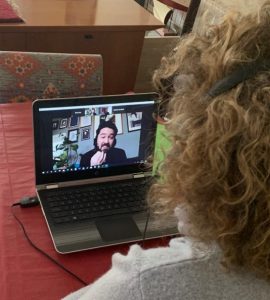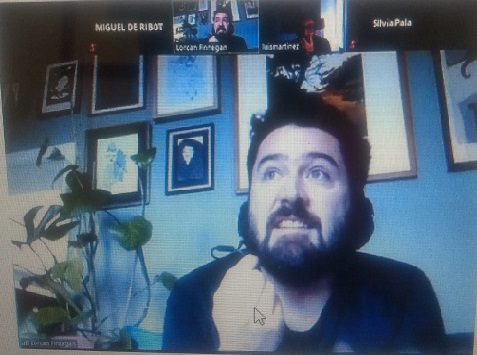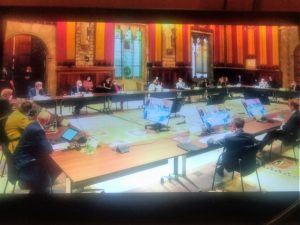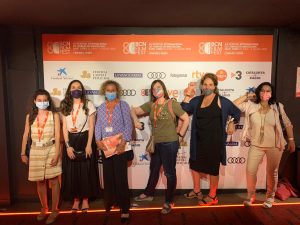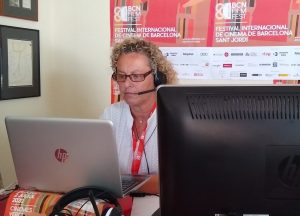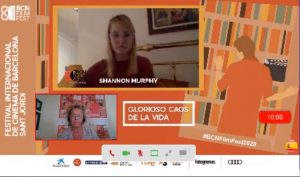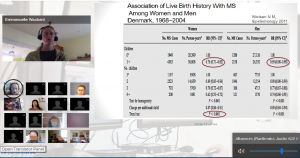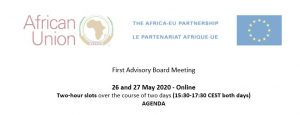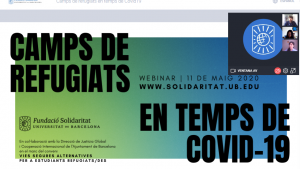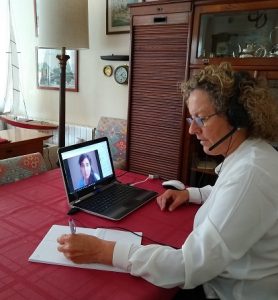On-line interpreting during the Barcelona Film Fest 2020
The BCN Film Fest 2020 completed its fourth edition with more than 8000 viewers and has already announced its next edition between the 15th and the 23rd of April 2021.
Its director, Conchita Casanovas, has considered these figures a resounding success taking into account the 50% capacity restrictions in all the sessions to guarantee the health measures imposed against the coronavirus.
Thanks to the public’s acceptance of the proposals offered by the Festival, it has been possible to fill the halls in an edition that has counted on the participation – in person or virtually – of top international celebrities, thus taking another step forward in the consolidation of this annual event.
A total of 44 films have been screened – 16 in the official section – and the winners have been:
The Best Film Award went to the new film by the British director and scriptwriter William Nicholson with “Hope Gap”.
The Critics’ Award and Best Music Award to “Corpus Christi” by Jan Komasa.
The award for Best Screenplay went to Shaun Grant for “True Story of The Kelly Gang”,
The award for Best Actor went to Josh O’Connor for “Hope Gap”,
The award for Best Actress went to Rosamund Pike for “Radioactive”.
On-line interpreting during the Webinar on Multiple Sclerosis and Pregnancy
We have started a series of medical webinars on multiple sclerosis and pregnancy.
Multiple sclerosis is a common neurodegenerative disease in young patients of reproductive age; pregnancy has always been controversial, given the need for pharmacological management, the risk of relapse and the resulting disability.
This series of webinars on multiple sclerosis and pregnancy aims to shed light on the prospects of these patients who wish to start a family and to solve the doubts of many specialists who wish to offer them the best solutions within their reach.
On-line interpreting during the Seminar on Refugee Camps in times of Covid-19
The UB Solidarity Foundation organised a second webinar on responses to the pandemic in the refugee camps. The event was attended by Mª Jesús Vega Pascual, Head of communication at the United Nations High Commissioner for Refugees, Lorraine Lette; a lawyer at the Lesbos Legal Center and the testimony of Congolese student, Roger Subira, selected by the Universitat Refugi programme who was unable to reach Catalonia when lockdown and the state of alarm was declared in Spain.
Roger is currently following the transition course to the University of Barcelona from the refugee camp where he lives in Uganda. Among other problems Roger highlighted: the lack of access to computers, the lack of access to internet, the cuts in the electricity network, the saturation of the refugee camp. Many depend on the United Nations World Food Programme’s donation of less than $60 per person per month, as they cannot travel to other activities for their livelihoods.
In the refugee camp he pointed to cases of domestic violence affecting women and children without the authorities intervening, malnutrition and poverty, increased crime rates and unwanted pregnancies among adolescents.
On-line interpreting for Sala Virtual de Cine
Today, 17 April, the Virtual Cinema Room was opened, a platform promoted by the distribution company A Contracorriente Films to showcase the premieres that were to come to the big screen this season. La vie scolaire, based on the directors’ own experiences, tells the story of Samia, a young teacher who takes over as head of studies in a school in the suburbs of Paris where she discovers the discipline problems and social reality that weigh on the neighbourhood.
It has been a pleasure to interview the directors, Mehdi Idir and Grand Corps Malade, in their respective confinements, from where they continue to work on new projects.
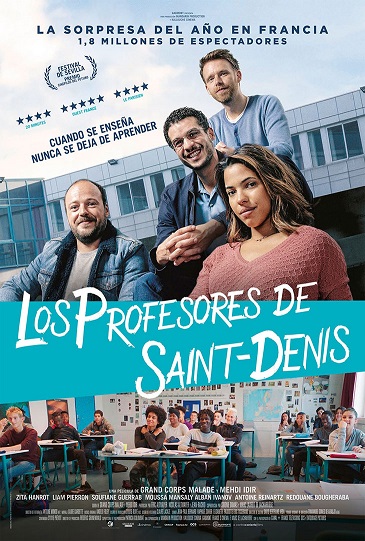
On-line interpreting during the Conference on COVID-19 and Heart Failure
Medical webinar given by Professor Magioni to a group of cardiologists in Ecuador and guidelines regarding the level of compliance, as well as implications for patient outcomes.
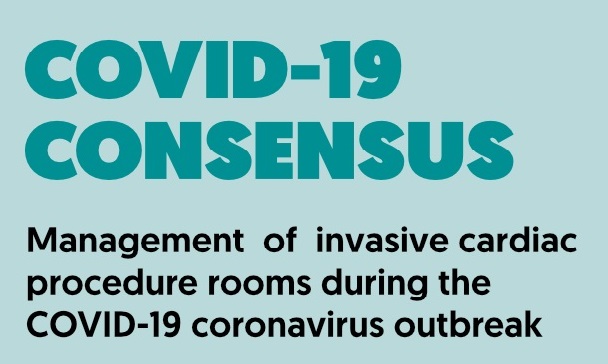
On-line interpreting during the Conference on Heart Failure and Reduced Ejection Fraction
Medical webinar given by Professor Desai to a group of cardiologists in Colombia on the results of different drugs in the treatment of heart failure with reduced ejection fraction
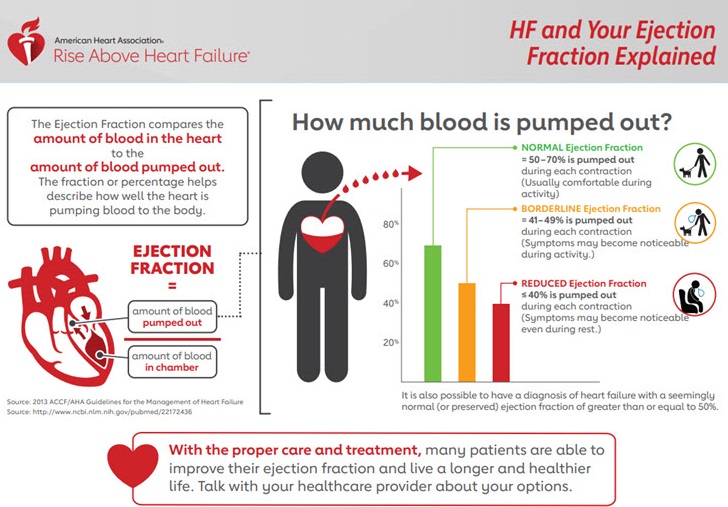
On-line interpreting during the interviews to Lorcan Finnegan, Director of Vivarium
The big screen has no alternative, the seventh art has been forced to cancel spring releases, productions have been stopped and local cinemas are exploring different possibilities to survive. This is the context in which Salavirtualdecine was born, an initiative promoted by A Contracorriente Films and its associated cinemas, the Verdi cinemas, with 70 theatres throughout Spain, so that audiences can enjoy some of these premieres on their mobile devices and televisions connected to the internet.
It is in Salavirtualdecine where we find Vivarium, released on April 8th, which tells the story of a young couple trapped in a house with a child and which takes on very different tones to those it had at its premiere in Cannes.
“It’s all so strange. The film that was seen for the first time in Cannes is the same as the one that is being released now, and yet it is completely different,” says the Irish director on the other side of the Zoom application from Dublin, where he is being held, in a cryptic, almost formal manner. And having said that, and to make it clear, it is the director who lists the rare catalogue of parallels between reality and fiction: “On the one hand, there is the obvious. Yes, Vivarium’ tells the story of a couple trapped in a house with a child. But, if you think about it, it’s so scary: the character Jesse (Eisenberg) plays develops an illness that manifests itself as a mysterious cough. Body bags appear in a somewhat inexplicable way. The couple receives everything they need by courier. And then, and this is already bordering on the paranormal, in the illustrations of the book that Gemma (Imogen Poots) reads to her son, a man, a woman and a child appear under a kind of symbol that reminds us with a sickly fidelity of the very drawing of the coronavirus that we are tired of seeing everywhere”. And at this point, it almost makes you want to ask the director for responsibility for the mess he has got us into. “It’s a bit creepy, to say the least,” he concludes, backing up on the couch and finally laughing.
